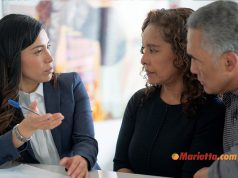Every day, updated reports outline statistics on the changing face of retirement for the current generation. Countless commercials address new issues arising for a growing population of senior citizens. The typical concepts of “advanced age” and “elderly” continually evolve far beyond the standards previously measured as people thrive well into their 80s and 90s. These golden years may last decades longer than expected and may require more coin from the treasure chest. Financial planning to support that next phase of life looks much different when viewed through a modern lens, focusing with an aperture of 20 to 30 years.
Randy Yeomans, CEO of Yeomans Consulting Group – YourRetirementCoach, sometimes feels the term “retire” has a negative connotation, as it usually means “to stop, to put away, to withdraw” based on the dictionary definition. “In the second half of your life, you should only retire from the things you don’t want to do,” Yeoman believes. “Retirement should be filled with following passions… sometimes that can be work and sometimes that can be other roles,” he continues. Yeoman urges clients to find a balance in their lives and to shift their perspective in order to give time and energy over to things that bring them fulfillment. For some, that may not necessarily mean retiring from a career, but it will require refining financial goals and preparing for shifts in living expenses.
“More clients today want to enjoy an active retirement,” says Yeoman, “it might be better to map out phases of retirement planning rather than [use] the old static model. This is a bit of art and science and it takes a multi-disciplined approach to optimize all resources — pensions, benefits, Social Security, personal capital, an ongoing career, etc.”
Yeoman regularly sees clients running into certain roadblocks, such as lack of portfolio management or tax plans, weak estate planning, misinformation about ownership or beneficiary rules, and failure to understand the scope of income changes. Additionally, Yeoman warns “clients often do not know their real budget or spending habits and misplan for the landmines of unexpected danger. Put it all on paper. Run capital projections. Doing nothing out of fear is not a plan. Begin by knowing what you want and plan accordingly.”
Ann Germany, a marketing executive with Arbor Company and The Solana East Cobb assisted living community, agrees with the importance of strategic, realistic retirement planning. “Make changes before you have to. Have a Plan A, B, and C,” she notes, “transitioning [into a different lifestyle] is a mental process as much as a physical one.” From her vantage point, she identifies preparation and education as essential tools for understanding the economic impact of retirement. “I am very passionate about the education piece of this whole puzzle,” Germany emphasizes. “I have seen the struggles in families as they try to navigate through so much information. Making decisions during periods of high emotion can be a disaster. And when it comes to assisted living, where to go can often be dictated by the financials.”
Successful retirement planning encompasses a wide variety of factors and the dedication to ask hard questions in order to evaluate potential needs. Be honest about your career plans, your support network, your health and that of your spouse, your personal priorities, and your living arrangements. Start the fieldwork now, and continue to follow up as new factors impact your choices. “Research the costs and conditions of facilities long before your reach retirement so that you can plan for that eventuality,” says Ken Rhudy, executive director of Presbyterian Village, a senior independent living community in Austell. “Set some realistic expectations and be honest about the unknown. Planning early is crucial; in fact, it’s impossible to start too early. Get your adults kids involved in that planning process.”
On a related topic, Rhudy speaks to the delicate rationale of contemplating where to live as you age. “Our clients are moving onto campus at a much later stage in life … a generation owning their homes and wanting to stay in them as long as possible,” Rhudy explains. “But, what happens when you can no longer drive to errands or appointments? How much would in-home care cost? Do you want to be alone? Loneliness and lack of social connection can be very dangerous for seniors. It’s crucial to remain active and engaged.”
Germany concurs, “Socialization keeps you vibrant. Consider the level of freedom and activity possible at a facility. Go to open houses as new places open up, join in activities with residents, learn about the different levels of care — from senior communities to independent or assisted living to memory care and nursing homes. Know the state requirements and certifications, and ask questions,” she says. The vast range of housing options provides opportunities for almost every interest and preference with most offering a full spectrum of activities and amenities to enhance community life for residents.
“Plan for the worst-case scenario from the beginning,” Yeoman concedes. “Too often, people don’t focus until there’s panic. Similar to living an unhealthy life, then having a major health crisis and correcting from there.” While you hope to never use that emergency plan, you’re much better served to have one in place and the entire family will appreciate the foresight.
Rhudy echoes that belief, noting that those unable to afford certain types of care or qualify for appropriate facilities resort to living with family members when they can no longer live independently. “In most cases, our clients are pretty smart about what they have,” affirms Rhudy, “but it’s increasingly important to consider long-term care insurance.” Germany applauds the recent trend amongst millennials as they become a fast-growing segment of long-term care investors, adding that type of security to a list that may already include home-buying, business-planning, and college-saving. It’s all part of taking a critical look at the big picture of your life story.













